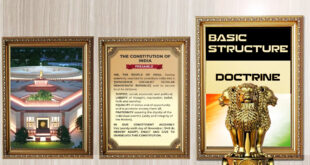Context
The Supreme Court on Friday said it cannot direct the Centre to include Rajasthani as an official language in the Eighth Schedule of the Constitution.
A Bench headed by Chief Justice of India said the subject of the petition concerns a policy matter.
The Eighth Schedule
It was added to the Constitution in 1950. The languages included in the Eighth Schedule are those that were spoken by a significant number of people in India at the time of the Constitution’s drafting. The Eighth Schedule also includes Sanskrit, which is considered to be the “classical language” of India.
The Eighth Schedule has been amended several times since it was added to the Constitution. In 1967, Sindhi was added to the Eighth Schedule. In 1992, Konkani, Manipuri, and Nepali were added to the Eighth Schedule. In 2004, Bodo, Dogri, Maithili, and Santhali were added to the Eighth Schedule.
The Eighth Schedule is significant because it determines which languages are used for official purposes in India. The Constitution states that Hindi and English are the official languages of the Union. However, the Eighth Schedule also states that the other languages listed in the Eighth Schedule are to be “recognized as additional official languages” in the areas where they are spoken by a substantial number of people.
The Eighth Schedule has been the subject of some controversy. Some people have argued that it is unfair that Hindi has been given a more prominent status than the other languages listed in the Eighth Schedule. Others have argued that the Eighth Schedule should be amended to include more languages.
Despite the controversy, the Eighth Schedule remains an important part of the Constitution of India. It ensures that the languages of all the people of India are represented in the official language of the country.
 Chinmaya IAS Academy – Current Affairs Chinmaya IAS Academy – Current Affairs
Chinmaya IAS Academy – Current Affairs Chinmaya IAS Academy – Current Affairs



